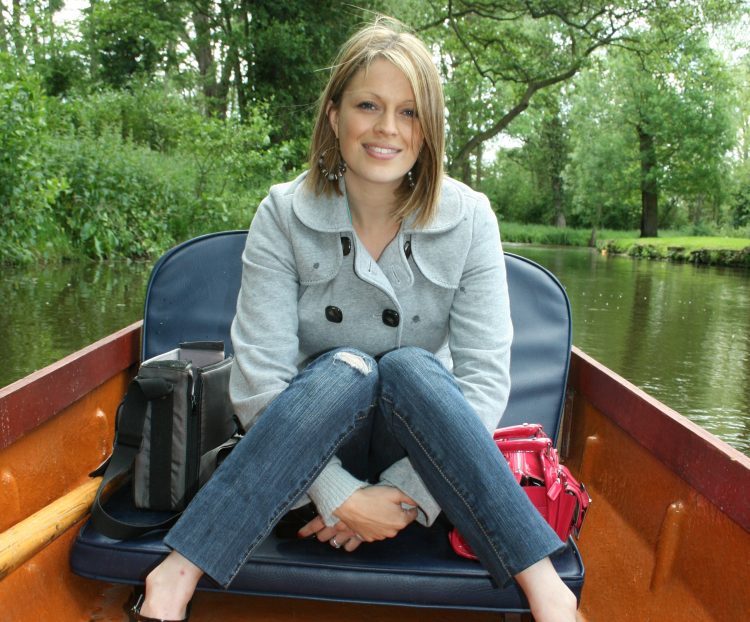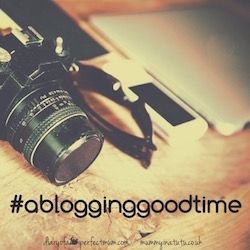Three square meals: the start of my recovery
Behind the smile, there's unimaginable pain

So there it was, in the cold light of day. I couldn’t do ‘this’ on my own. I needed outside input to start my recovery from a debilitating eating disorder.
I’d been ‘defeated’.
But had I?
In my mind up until the point I accepted I wasn’t getting very far very fast, if I couldn’t sort out my recovery and gain control over my eating disorder myself, I’d have failed. I’d have been too weak.
But in actual fact, the realisation that the time had come to accept this wasn’t going to happen and that I did need to seek some help was unexpectedly liberating.
I think one of the lowest points was forcing myself into work one morning and collapsing early on in the day. I’d felt completely awful but that was nothing new. I just powered through. I’d already done a DVD workout before work and not eaten a thing, and I remember it being mid-morning. I just couldn’t stay conscious any more. My vision started to blur, and I felt myself falling.
When I came to, I had no strength or inclination to hide it any longer. I’d confided in one of my colleagues who had become a close friend so she knew I was ill, but no-one else did. And out it tumbled. The shame I felt had forced me to hide it from them, but they were incredible. The support and love I felt as they called Tim and we waited for him to come and get me was tangible. I guess there was a bit of an intervention that day.
We got an emergency doctor’s appointment and I had some blood tests. He told me I was quite underweight, which I shook off and dismissed as ridiculous because I have a petite frame but, if I’m completely honest I did that because to me – quite genuinely – there could be no such thing.
I went home to bed. I’d hit a massive wall and couldn’t really remember a time when I’d felt that unwell.
It turned out that my liver was shutting down.
This was major. And still, my overriding concern was that because I was resting (and not exercising), I’d be putting weight on. Not that this was a potentially life-threatening health risk that had begun because my eating disorder had got so terribly bad.
Not long afterwards, I started a new job. A dream job, with a dream team in an organisation I would have bled for. I was happier. My previous job (where liver-gate happened) had been a very stressful, unsupportive and tense environment so this was such a change and I think that combined with having a boss I trusted was a catalyst to me finding the right time to approach the idea of proper help.
I’d been suffering intensely for around three years at this point.
I spoke to my boss and spilled about my situation. I had no option. If I was to receive treatment as an outpatient, I’d need to take time off during work hours to go to the appointments.
Reaching out to people took more courage than I felt I had within me, but it paid off. I hated the idea that she would think less of me because of my mental health issues. I feared she would think me less capable and would trust me less at work.
I wasn’t prepared for her reaction, which was pure compassion. This amazing woman sat there and said the most beautiful things to me about the courage it had taken to talk to her, and offered whatever support I needed to get better.
So it began. First with an assessment (one of the most gruelling things I’ve ever had to sit through – my shame was palpable and I couldn’t even take my coat off, I felt so intensely vulnerable) followed by The Diagnosis (equally mortifying), followed by a recommendation for Cognitive Behavioural Therapy (CBT) at a local private hospital. I was so fortunate to have healthcare cover with work.
CBT isn’t a magic bullet, in my opinion. And this is all just that – my opinion and experience.
I took some gems from it that paved the way for me to progress in a huge way with my recovery, but it wasn’t The Answer. It was a powerful catalyst for me to begin to challenge the way I thought about and treated myself though, so perhaps it’s possible that it offered me more long-term than I realised.
Roy, my psychotherapist taught me this, which changed the way I think about many things in my life: that you can’t reason your way out of an emotional state.
I can’t really believe I hadn’t realised that before. It seems like such a simple concept, but this was revolutionary for me because it enabled me to start to understand my thoughts a bit better, and also my reactions to my thoughts. Perhaps to become a bit more present and aware of the thoughts I was having, which I guess is the first step towards regaining some degree of control over how we react and respond to our thoughts, rather than signing over exclusive rights to all control over to the thoughts themselves.
He taught me to treat myself with more compassion, and to ease up on myself by showing me that the standards I set for myself were unachievable so I was doomed to failure unless I challenged my own expectations.
My weight does not equal my worth became my inner mantra. A bit of an affirmation. I didn’t say it out loud or anything, but I had to find ways of reprogramming my fear around what imaginary catastrophes would happen if I put weight on.
I truly began to accept that my eating disorder was all about control for me, and that it was possible to take back the power. I started to feel like it might be possible to feel different. It wasn’t immediate, but at that point even a glimmer of hope was so big, I can’t even describe how empowered I felt – just by that remote possibility.
I’d started to feel as though life could become different, and that this might not get the better of me. That I might not always be all-consumed by this disgusting beast. That I might wake up one day and not feel as though the risk of giving in and just letting it take me as it wanted to was so high.
Roy helped me to understand that this was a permanent thing. It was never going to go away. My recovery is and will always be ongoing.
This took the pressure off me to reach this seemingly unachievable utopia of the ‘normal’ I sobbed for at night. My idea of ‘perfect’ did not exist, and once he impressed this upon me – along with the fact that my recovery would always be a work in progress that required constant supervision and maintenance – I relaxed. This was transformational for me.
The pressure for recovery to be final is immense and unreasonable. Or at least, it was for me.
Accepting that this was part of my tapestry and understanding that the hard days didn’t equate to failure was oddly freeing. Permission was granted to begin again the next day, and the only pre-requisite was that I must try (not succeed, necessarily, just try – there’s such a huge difference between the two) to be kinder to myself.
My relentless perfectionism was not doing my any favours – just damage. Just because you have a bad day, it doesn’t mean you’re losing. It takes more strength to recover from those days and keep pushing towards the future you want than it does on the days it comes easier.
Perhaps the biggest and most enduring gift that Roy gave me was this: we must behave the way we want to be. And this goes for all of us, in every area of our lives.
For me, this meant being religious and committed about wanting to follow what I was being taught. To get out of bed on the days when I wanted to pull the duvet over my head and shut out the world. To force myself to eat three meals a day, and to do my best to regulate my exercise.
I chose not to take medication. I was offered it many times, but didn’t feel it was right for me. This was my personal choice and I’m not sure I would make the same decision today, knowing what I do now. I know and love many people who have been helped immeasurably by medical intervention. We all just have to do what it right for us.
Slowly but surely, the shackles loosened.
Fast forward a couple more years, and I was finally edging towards a place I’d previously thought just didn’t exist.
Above all else, I wanted to get better for Tim and for our future. The idea of having a family and potentially risking passing on my issues was more terrifying than I could every articulate. I had so much to live for.
In the next post I’ll move on to becoming pregnant and how I dealt with the physical and emotional changes. Thank you so much for reading. The response to this series has been truly unbelievable. My greatest hope is that this will help someone, somewhere to find the strength to be kinder to themselves. X
Click here to read the next part in this series.










4 Comments
[…] In part three of this series, I’ll talk about going through my CBT treatment and getting my recovery well-established before we decided to work towards having a family. Read part three here. […]
Ursula, the more I read about you the more remarkable you become to me. Such strength and determination – it must have been far from easy but you just ooze a zest for life and to not give up on yourself. I think there will certainly be others reading this who will be incredibly inspired, just as I am xx
Thanks so much for sharing, and for linking with #coolmumclub xx
Thanks for these beautiful words, and for reading lovely. I count myself very lucky to have a life that is (and always was, even on those dark, dark days) worth fighting hard for. And it’s so much sweeter now that I have a hold over it, rather than it over me. Xxxx
[…] Three square meals: The start of my recovery – a superbly brave post about the start of an eating disorder recovery […]